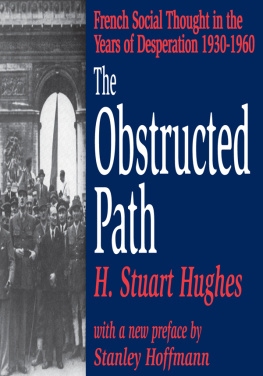Originally published in 1960 by Sheed and Ward, Inc. The Introduction to the Transaction Edition originally appeared in Modem Age, Fall 1995, vol. 38, no. 1.
Published 1997 by Transaction Publishers
Published 2017 by Routledge
2 Park Square, Milton Park, Abingdon, Oxon 0X14 4RN
711 Third Avenue, New York, NY 10017
Routledge is an imprint o f the Taylor and Francis Group, an informa business
New material this edition copyright 1997 by Taylor & Francis
All rights reserved. No part of this book may be reprinted or reproduced or utilised in any form or by any electronic, mechanical, or other means, now known or hereafter invented, including photocopying and recording, or in any information storage or retrieval system, without permission in writing from the publishers.
Notice:
Product or corporate names may be trademarks or registered trademarks, and are used only for identification and explanation without intent to infringe.
Library of Congress Catalog Number: 96-17937
Library of Congress Cataloging-in-Publication Data
Molnar, Thomas Steven.
Bernanos : his political thought and prophecy / Thomas Molnar ; with a new introduction by the author.
p. cm
Includes bibliographical references.
ISBN 1-56000-932-2 (pbk. : alk. paper)
1. Bernanos, Georges, 1888-1948Political and social views. 2. FrancePolitics and government1870-1940. 3. FrancePolitics and government1940-1945. 4. Action franaise. 5. Conservatism FranceHistory20th century. I. Title.
PQ2603.E5875Z75 1996
843'.912dc20
96-17937
CIP
ISBN 13: 978-1-56000-932-0 (pbk)
The Case of Georges Bernanos
LET it be clear from the beginning that George Bernanos would have indignantly rejected the qualifier conservative. In Latin civilizations, as opposed to Germanic or Anglo-Saxon, the term is almost offensive, as Bernanos himself made it clear in a volume-size invective against the bien pensants, the Pharisee-like bourgeois equivalent of the narrow-minded conservative. All his life he was a man of the right, and the only question to clarify was whether right was compatible for him with ultra-right, or with popular right, or with Catholic right. When we read his books, essays, or the many minor texts published in the Cahiers managed by one of his sons (Bernanos died in 1948, at age sixty), the salient features leave no doubt: a passionate man who lived his ideas, and these ideas could not be contained in a quiet study. Like bullets they were directed, not to say shot, at targets: the hypocrisy of the powerful, including the clergy; the mechanical mentality of the routine-loving; the born bureaucrat who opens his psychological consultation cabinet from nine to five, exclusive of Saturday and Sunday. When we learn that such experts may be, in the near future, the Jesuits, the remark acquires a sharper edge. Or when he wrote, long before the Vatican Council, that he could see himself being shoved against a wall and machine-gunned by priests who hate his kind of independent souls, we have no difficulty evaluating the weight and direction of his invectives. Priests with machine guns figured in liberation theology.
I could quote many other instances of sarcasm because the trademark of his fierce indignations against traitors and fools was his unsparing style. The targets were Frances greatest names who happened to incur his contempt: Mauriac, Montherlant, Maurras, Claudel. They were opportunists who in his eyes humiliated themselves for favors and betrayed loyalties. This makes us think, in the Anglo-Saxon milieu, of an Evelyn Waugh coupled with Ezra Pound, then given a philosophical working over by G. K. Chesterton. Indeed, out of these three men, with Hilaire Belloc perhaps added, we might construct a simili-Bernanos, although the attacks that Bernanos launched had mostly local, political, and ecclesiastical reasons. His novels showed the qualities as well as the defects: on the one hand, some characters display an abject humanity, the farthest from grace; on the other hand, there is the saint, physically dying from the superhuman effort of saving the weak, the dried-up, the abject. Andre Gide once remarked that there could be no Catholic novel since the outcome, the triumph of virtue, is settled in advance. Bernanos was the living refutation: the dynamics of grace supply the unexpected element as it tears away the soul from the mud of wretchedness. And the protagonists of the gigantic war of souls astonish us again and again with their fresh and sharp spirit in sick bodies, and with their talent to outwit the sin of hardened souls.
All this would not make Bernanos a man of the right. But consider this. In the given French milieu, Bernanos was searching, like God in Sodom, for a few righteous men, and expected to find them among honest, devoted, patriotic, and committed Christiansover and against the modern man with clockwork where the soul ought to be. This is clearly a Pascalian note, and like Pascal, Bernanos knew the layers of self-manufactured illusions, good conscience, and eager compromise that separate one from the genuine self, naked before God. Since both leftist and rightist have their dirty little secrets, and one is not better than the other, the Bernanosian distinction does not run along party lines, programs, or conservative-liberal controversies. Instead it divides people into the innocent and the impostor whose whole life is one of playacting and dodging of reality. We should not therefore expect to find the usual right wing or indeed any kind of politics and partisanshipsfor Bernanos, politicians were transparent in their escape from real issuesbut an altogether new lineup. The following are marked by a quasi-Luciferian falsehood: the holier-thanthou Voltairean bourgeois; the capitalist and Marxist systematizers; the spokesmen of the modern pagan state; the Tartuffes among the clerics; the technologically robotized world; the naive citizen who trusts the voting bulletin.
It is obvious that this is much less and much more than politics, and also that it is both left and rightand neither. It is not Germanic meta-politics (lets say, in the Voegelinian sense), nor material for a Straussian analysis of political fundamentals. Like Pascal, Bernanos has a generally man-centered vision where the key term is divine grace, which perfects the human condition: leaves it intact, yet draws it higher. In this light, the modern world is like Cain, it hides from God and tries to postpone the reckoning. Politics is part of the vision only because we live in the midst of political realities, which must, however, be measured by a higher standard. For France these realities are a long history of kings, heroes, saints, and also of scoundrels, hypocrites, and fools; and the political goal, if there is such a thing, is the same as the underlying plot of Bernanoss novels: to deal with the work of sin and grace in the human heart. The nations conscience is not different from that of its individuals.
It must be emphasized that no party, interest group, or regime carries the seal of divine or historical approval this side of salvation. But as with Charles Pguy, the maverick socialist and Catholic, there are degrees, and France is empowered with a special mission. This is perhaps the main axis of the Bernanosian political-national vision; this is what he found in his youth in the













